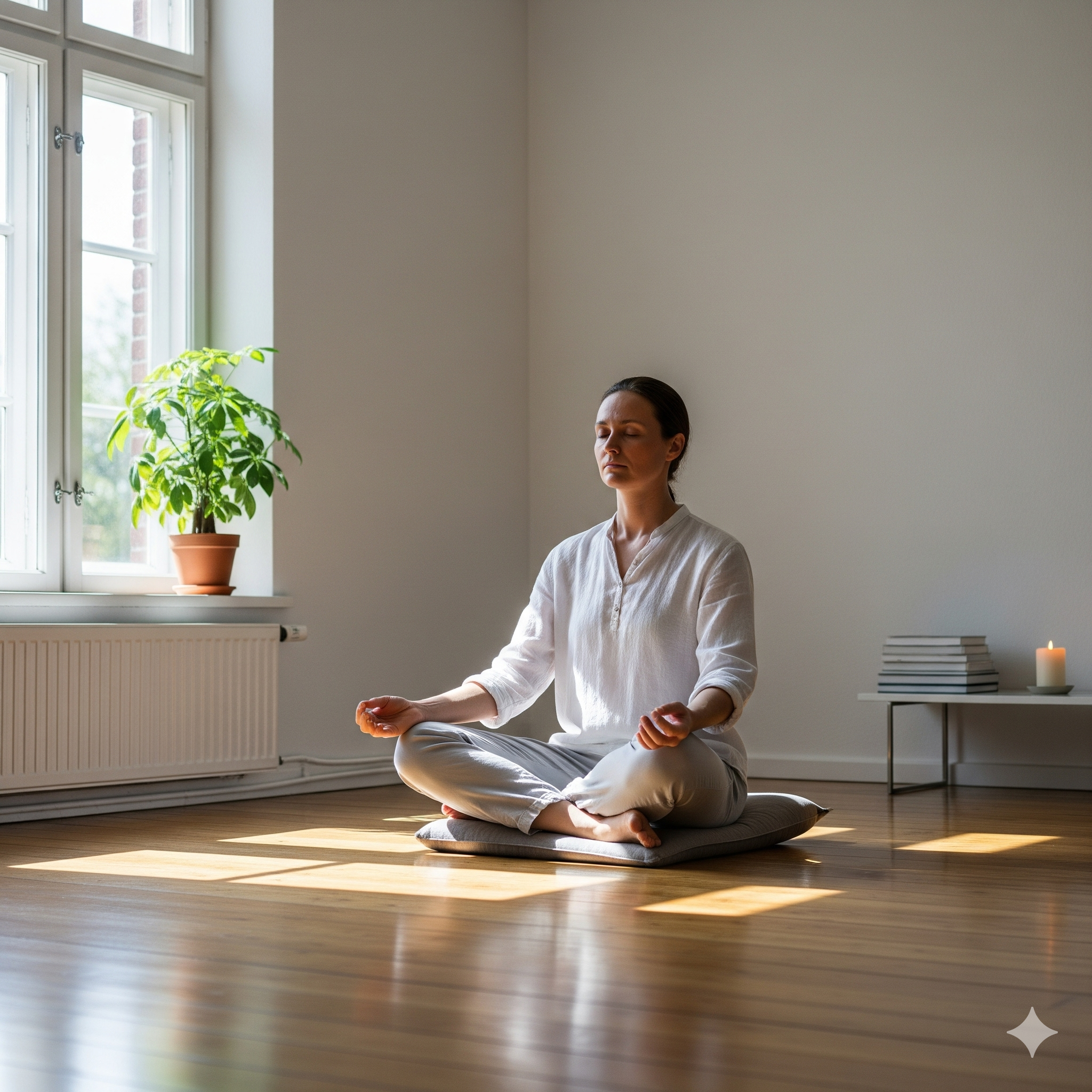How Minimalism Helps You Save Money for Travel
Discover how minimalism helps you save money for travel and achieve financial freedom. A complete guide to frugal living and intentional spending.
The Freedom Equation: How Financial Minimalism Can Fund a Life of Travel and Adventure
There’s a beautiful, recurring dream that many of us share. It’s the dream of waking up in a new city, of watching the sunset over an ocean you’ve never seen before, of trading the daily grind for the thrill of exploration. But then, reality hits. Travel costs money, and for most of us, our finances feel like an anchor, holding us firmly in place. As the creator of Neat Tiny Home, I’ve built my life around the idea that true wealth isn’t about having more, but about needing less. I’ve discovered that the path to a life rich in experiences often begins with a life that is simpler in possessions. This philosophy has a name: financial minimalism.
This is your comprehensive guide to one of the most liberating concepts you will ever encounter. We are going to explore, in detail, exactly how minimalism helps you save money for travel. This is about so much more than just skipping your daily latte. It’s a profound shift in your relationship with money and possessions, moving from a mindset of mindless consumption to one of radical intentionality. We’ll dive into the core principles of financial minimalism, explore a treasure trove of practical frugal living tips, and connect these daily habits to the ultimate, exhilarating goal of financial independence. My mission is to show you that your travel dreams are not out of reach. They are waiting for you on the other side of a life lived with less, but with so much more purpose.
What is Financial Minimalism? (It’s More Than Just Being Cheap)
Before we can truly understand how minimalism helps you save money for travel, we must first define our terms. Financial minimalism is not about deprivation. It is not about living a joyless, austere life where you deny yourself every pleasure. That’s a common misconception that misses the entire point. At its heart, financial minimalism is the practice of aligning your spending with your deepest values. It’s the art of spending extravagantly on the things that bring you true, lasting joy and fulfillment, and ruthlessly cutting out everything else. For us, that “thing” is travel. For someone else, it might be starting a business or spending more time with family. It’s a tool for resource allocation, ensuring that your most valuable resources—your time, your energy, and your money—are flowing toward your life’s greatest goals, not being frittered away on trivialities.
The “Value-Based Spending” Philosophy
The core principle of financial minimalism is value-based spending. It’s a stark contrast to traditional budgeting, which often focuses on restriction. Instead of saying, “I can’t spend money on that,” a financial minimalist asks, “Does spending money on this align with my values and bring me closer to my goals?” It’s a shift from a mindset of “no” to a mindset of “yes”—a powerful “yes” to the things that truly matter. This means you might choose to live in a smaller apartment so you can afford a month-long trip to Southeast Asia. You might learn to cook amazing meals at home so you can save for a culinary tour of Italy. It’s about making conscious, deliberate trade-offs. The goal isn’t to be cheap; the goal is to be intentional. For a fantastic deep dive into this concept, I highly recommend the work of Ramit Sethi, author of “I Will Teach You to Be Rich,” whose blog can be found at iwillteachyoutoberich.com.
The Connection Between Physical and Financial Clutter
The journey to financial minimalism almost always begins with physical minimalism. The two are inextricably linked. When you declutter your home, you are confronted with the physical evidence of your past spending habits. You see the unworn clothes, the unused gadgets, the books you never read. Each of these items represents a financial decision. This process of decluttering isn’t just about clearing space in your home; it’s about clearing space in your mind and your budget. It’s a powerful, tangible lesson in the true cost of mindless consumption. As you begin to live with less, your desire to acquire more naturally diminishes, and this is where the real financial magic begins. This is the foundational reason for how minimalism helps you save money for travel.
The Practical Magic: A Deep Dive into How Minimalism Helps You Save Money for Travel
Alright, let’s get into the nitty-gritty. How does this philosophical shift actually translate into a bigger travel fund? The process is a beautiful cascade of positive effects. By changing one core habit—your approach to consumption—you trigger a series of changes that will fundamentally reshape your financial life. This is the practical, actionable heart of this guide. Let’s explore the specific mechanisms that make this work.
| Minimalist Habit | Financial Impact | Travel Goal Connection |
|---|---|---|
| Decluttering & Reducing Purchases | Drastically cuts spending on non-essential “stuff.” | This is the primary source of newly “found” money for your travel fund. |
| Downsizing Your Home | Lowers rent/mortgage, insurance, and utility bills. | Frees up hundreds or thousands of dollars per month. |
| Simplifying Your Wardrobe | Eliminates spending on fast fashion and trendy items. | The money saved on one year of clothes could be a round-trip ticket. |
| Adopting Minimalist Hobbies | Replaces expensive entertainment with free or cheap activities. | Creates more “fun money” that can be reallocated to your travel fund. |
1. It Annihilates Impulse Spending
A minimalist mindset is the ultimate antidote to the impulse buy. When you have a curated, clutter-free home, you become a fierce protector of that space. Before you buy something new, you’re forced to ask a series of critical questions: “Where will this live? Do I truly need this? Is this better than something I already own? Does this bring me closer to my goal of a trip to Paris?” More often than not, the answer is no. You begin to see that the fleeting thrill of a new purchase pales in comparison to the lasting joy of funding your next adventure. This is one of the most direct ways how minimalism helps you save money for travel—it short-circuits the mindless spending that drains our accounts. For more on breaking bad spending habits, the insights from financial experts like those at NerdWallet are invaluable.
2. It Encourages Downsizing and Lowering Your Biggest Expenses
Minimalism naturally leads you to question the very space you live in. You realize that a large portion of your income goes toward maintaining a home filled with things you don’t even use. This often inspires people to downsize to a smaller, more affordable apartment or even a tiny home. This single decision can be the most impactful financial move you ever make. A smaller home means a lower rent or mortgage, lower utility bills, lower insurance costs, and less money spent on maintenance and furnishings. The hundreds, or even thousands, of dollars saved each month can be redirected to your travel fund, dramatically accelerating your timeline. This is how minimalism helps you save money for travel on a massive scale.
3. It Frees You From the Trap of “Keeping Up with the Joneses”
So much of our spending is driven by comparison. We see the new car our neighbor bought, the fancy kitchen renovation on social media, the latest tech gadget our friends are raving about. We feel a pressure to keep up, to signal our success through our possessions. Minimalism is a powerful declaration of independence from this cycle. You learn to define your own success, and you realize that a passport full of stamps is a far more impressive status symbol than a garage full of stuff. By opting out of this game, you save an enormous amount of money that would have been spent on things you didn’t even want in the first place. This is a subtle but profound way how minimalism helps you save money for travel.
Actionable Frugal Living Tips Inspired by a Minimalist Mindset
Financial minimalism provides the “why,” and these frugal living tips provide the “how.” These are the practical, daily habits that will turn your minimalist philosophy into a powerful savings engine. Each of these tips is designed to help you spend less on the things that don’t matter, so you have more for the things that do.
1. Master the Art of the “No-Spend Challenge”
A “no-spend” challenge is a fantastic way to reset your spending habits. For one week or one month, you commit to spending money only on absolute essentials: rent/mortgage, utilities, groceries, and gas. No restaurants, no new clothes, no entertainment. This period of abstinence reveals your spending triggers and forces you to find free ways to entertain yourself. You’ll be shocked at how much money you save. It’s a powerful tool that demonstrates just how minimalism helps you save money for travel by showing you what’s truly essential. For inspiration, the FIRE (Financial Independence, Retire Early) community has fantastic resources on this, with blogs like Mr. Money Mustache leading the charge.
3. Adopt Minimalist Hobbies
Many modern hobbies are designed around consumption. Instead of retail therapy, explore hobbies that are free and enriching. Rediscover your local library instead of buying new books. Go for a hike instead of going to the mall. Host a potluck with friends instead of going out to an expensive restaurant. By finding joy in activities that don’t require a purchase, you’ll naturally spend less and have more time and money for your bigger life goals. For more on finding joy in simplicity, I love the work of Leo Babauta at Zen Habits.
The Ultimate Prize: Financial Independence and a Life of Adventure
The daily habits of financial minimalism are the building blocks for a much larger, more exhilarating goal: financial independence. This is the point at which your savings or investments generate enough income to cover your living expenses, meaning you are no longer required to work for money. For a traveler, this is the ultimate freedom. It means the ability to travel not just for a two-week vacation, but for months or even years at a time. It means choosing to work because you want to, not because you have to. Every dollar you save by choosing a minimalist path is a dollar that can be invested in your freedom. This is the most profound way how minimalism helps you save money for travel—it doesn’t just fund a trip; it can fund a completely new way of life. A great resource for travel-specific financial planning is the blog Nomadic Matt, which is full of practical advice.
Your dream of a life filled with travel is not a frivolous fantasy. It is a valid and beautiful goal. By embracing financial minimalism, you are simply making the conscious choice to trade the temporary thrill of material possessions for the lasting, life-changing joy of exploring the world.
Frequently Asked Questions (FAQ)
This sounds great, but I have a family. Is financial minimalism possible with kids?
Absolutely! In fact, it can be an incredible gift to your children. It teaches them the value of experiences over things from an early age. It means more family adventures and less time spent cleaning and organizing toys. The key is to get them involved. You can use the “one in, one out” rule for toys, and you can focus on gifting experiences (like a trip to the zoo or a camping adventure) instead of more stuff.
I feel like I’ll be missing out on things my friends are doing and buying. How do I deal with that social pressure?
This is a real challenge. The key is to be confident and open about your goals. Instead of just saying “I can’t afford it,” try saying, “That sounds fun, but I’m saving every extra dollar for a big trip to Japan next year.” When you frame it as a choice you’re making in pursuit of an exciting goal, people are often inspired rather than judgmental. And you may find that your true friends are happy to join you for a potluck or a hike instead of an expensive outing.
How do I start saving for travel when I’m living paycheck to paycheck and have debt?
The principles of financial minimalism are even more critical in this situation. The first step is to use the money you save from decluttering your spending to aggressively pay down high-interest debt, like credit card debt. This is the fastest way to free up your income. Start incredibly small. Can you find $20 a month to cut? That’s $240 a year—enough for a bus ticket for a weekend trip. As you cut more expenses, you’ll create more breathing room. The journey starts with that first, small step.





Post Comment